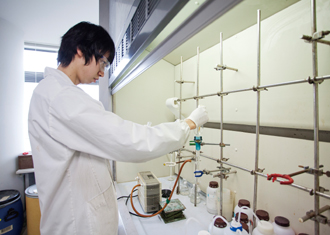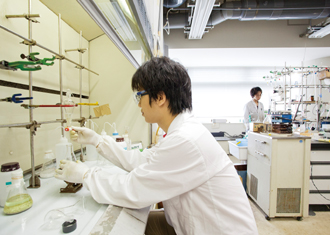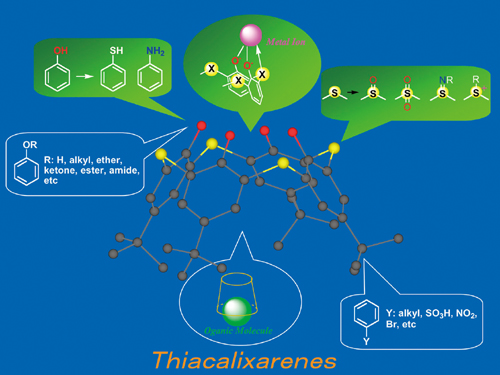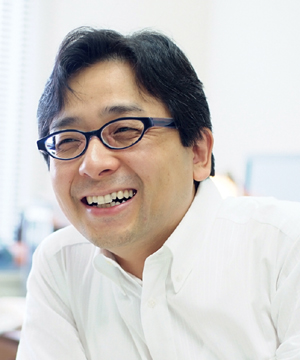Applied Organic Synthesis
Gaining a deeper understanding of structures and mechanisms at the atomic/molecular level in order to create new functional molecules


Our main research is focused on the development of organic compounds that provide new functionality, predicated on the ideal of efficient production of target materials using new types of synthetic methodologies and reactions. Put simply, our goal is to create new materials, more strictly, organic compounds with the potential to provide new functionality. This may include the novelty in the process sense, that is, the utilization of a new synthetic reaction or methodology.
The fundamental aim of organic chemistry is to clarify material structures and the mechanisms behind the manifestation of physical properties at the atomic and molecular level, and to develop methodologies for producing organic compounds with the desired functionality. In order to ensure that materials are prepared in an environmentally benign manner, we need to artificially recreate chemical transformation with a high level of activity and selectivity using catalysts featuring enzymes, a key characteristic of biological reactions, and further to develop ever better enzyme mimics.
Taking advantage of precise molecular and/or ion recognition ability hitherto never seen, which is achieved by learning from enzymes, we can also develop new reactions for environmentally-benign organic synthesis.
Our research is dedicated to exploring the potential of original discoveries made in our laboratory. Quite often, unexpected discoveries are made in the course of ongoing research work. So it is vital that we fully utilize the background knowledge acquired through our daily work in questioning the natural world about our beliefs and assumptions and seeking responses. There is great satisfaction in analyzing the responses to our queries.

The functional molecule thiacalixarene, which can recognize a range of metallic ions and organic molecules through functional group transformation
Main Research Themes
- Functional molecules based on thiacalixarene
- Activation of CO2 by Lewis acid and its fixation to organic molecules
- Control of asymmetric phenomena by the dielectric constant of solvent
- Atropisomeric biaryl-based photoresponsive molecules
- Utilization of solution phase and molten phase on crystal surface as chemical reaction fields

Professor of the Biomolecular Engineering at the Graduate School of Engineering
Doctor of Engineering
Tetsutaro Hattori
Graduated from Funabashi Senior High School (Chiba Prefecture) in 1982. Completed a doctorate in applied chemistry at the Graduate School of Engineering at Tohoku University in 1992. Appointed associate professor at the Graduate School of Engineering at Tohoku University in 2001. Appointed professor at the Graduate School of Environmental Studies at Tohoku University in 2005. Assumed current position in 2010. "I've always liked finding things out, such as in summer holiday free school assignments. Once, in my third year of junior high school, I read that the boiling point of water was different at the top of Mt. Fuji. I was so keen to study the relationship between atmospheric pressure and boiling point for myself that I managed to convince my father to hike up Mt. Fuji with me (laughs)." The slogan of the Hattori Laboratory is: Make Your Own Discoveries.

